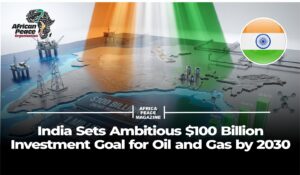Eastern Mediterranean Gas Discoveries Reshape Regional Energy Dynamics
The Eastern Mediterranean has emerged as a critical energy hub following the U.S. Geological Survey’s estimation that its eastern basin contains approximately 122 trillion cubic feet of natural gas. These discoveries are fostering strategic partnerships that transcend traditional political boundaries among Mediterranean countries.
Israel has established itself as the strongest player in the Eastern Mediterranean gas equation, particularly after discoveries in the Tamar and Leviathan fields transformed it from an importer to a major gas exporter. The country currently exports gas to Jordan and helps meet a significant portion of Egypt’s growing demand.
However, exporting Israeli gas to global markets requires transportation via pipelines to Egypt’s liquefied natural gas terminals for conversion and export. With Egypt’s declining domestic production and rising internal demand, the country has begun consuming most of the gas it receives, creating challenges for Israel’s ability to expand external exports.
Major international energy companies are active in the region, including ExxonMobil, Chevron, QatarEnergy, TotalEnergies, and Eni. The State Oil Company of the Republic of Azerbaijan (SOCAR) has also entered the Israeli market in partnership with British Petroleum.
The development of the Gaza Marine field, discovered by British Petroleum in 2000, remains stalled due to ongoing conflicts, despite initial Israeli approval for the project in June 2023 in collaboration with the Palestinian Authority and Egypt.
Source: daraj.media





